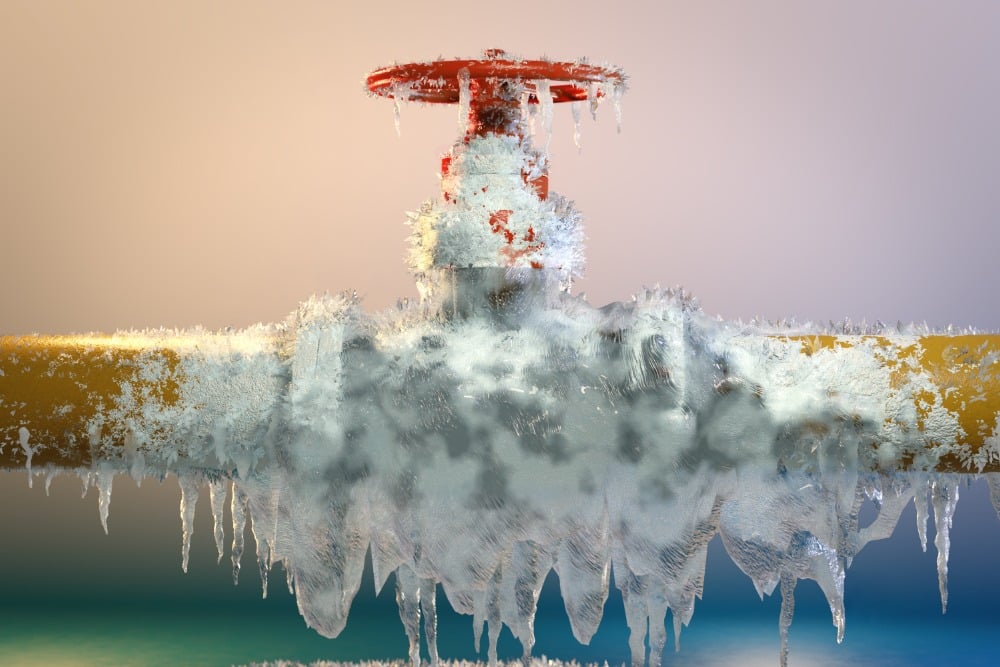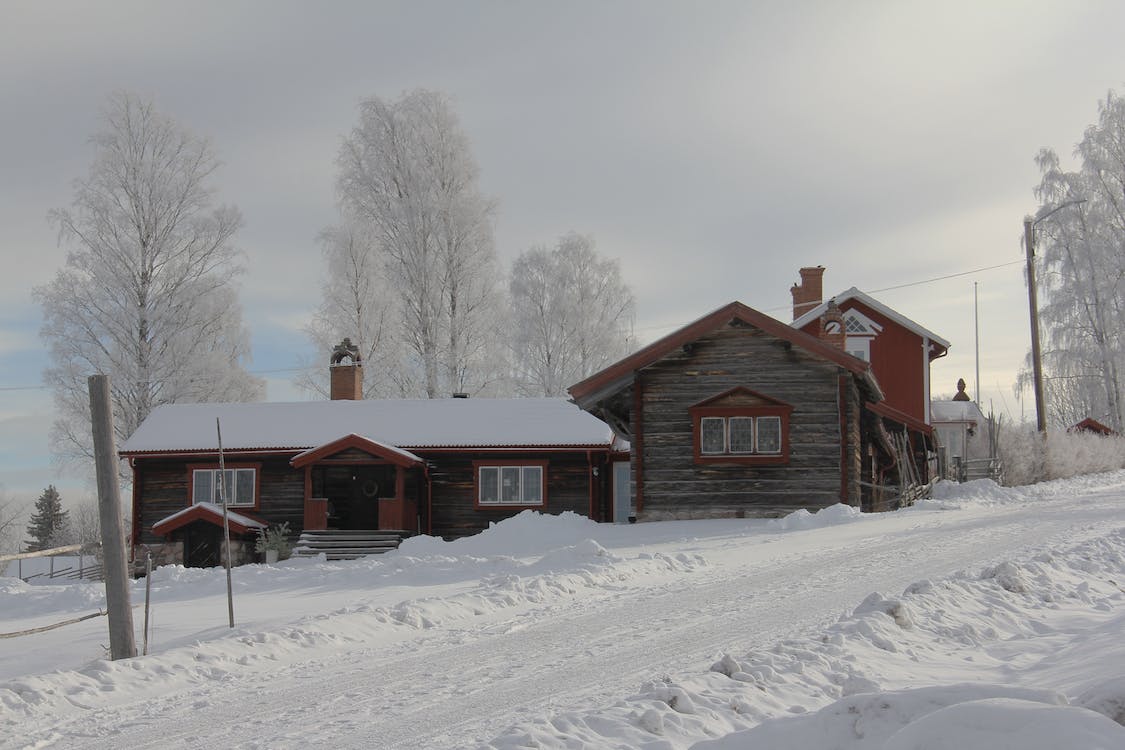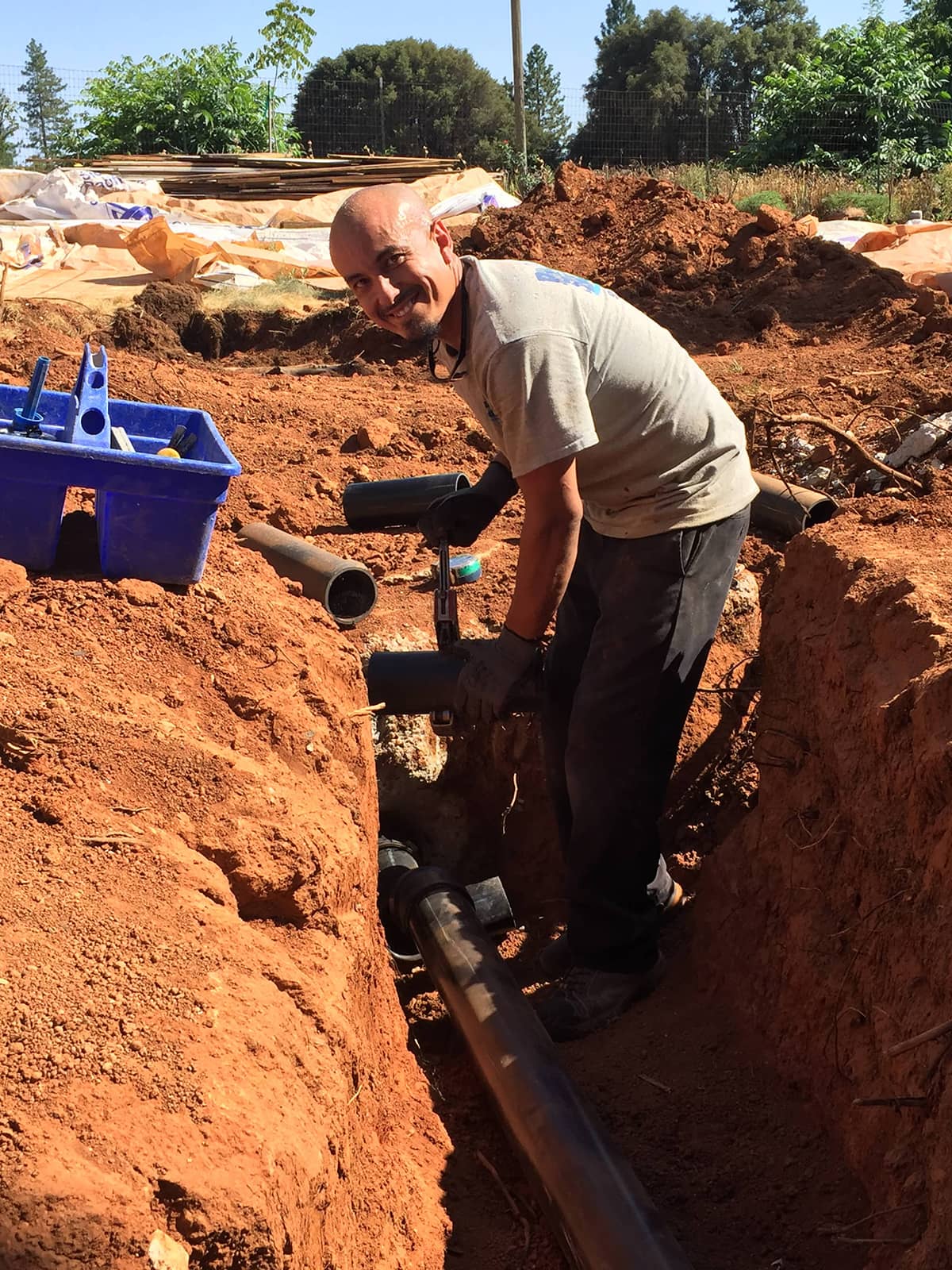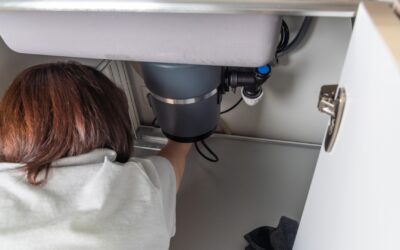If left untreated, frozen gas lines can lead to damage and even explosions. To prevent this from happening, it is important to contact a professionals who have experience in fixing frozen gas lines.
Common Causes of Frozen Gas Lines
Here are some of the most common causes of frozen gas lines:
Extremely cold temperatures
When temperatures dip below freezing, the water in the gas lines can freeze and block the flow of fuel.
Poor insulation
If the gas lines are not properly insulated, they can become susceptible to freezing.
Leaks or cracks
Leaks or cracks in a gas line can allow moisture into the system, which can then freeze.

Signs of Frozen Gas Line
If you suspect that your gas line may be frozen, there are some signs you can look for to confirm this. Frozen gas lines can cause severe damage if left unfixed, so it is important to be able to identify the issue as soon as possible.
Ice on the Outlet
One of the most common signs of a frozen gas line is ice forming around the outlet, such as at a gas meter or other outlet point. This is usually caused by cold weather and can indicate that the gas line has frozen and needs to be thawed out.
Low Pressure
Another sign of a frozen gas line is low pressure in the system. If you have your gas turned on but are not getting any flow or pressure, this could be an indication that your gas lines are frozen and need to be thawed out.
No Gas Flow
If you can’t get any gas flowing from your outlets, it’s likely that your lines are frozen and need to be thawed out before you can use them again. This can also happen if there’s a blockage in the line due to ice buildup.
Cold Surroundings
If you notice that the area around your gas lines feels unusually cold, this could be another sign of a frozen gas line. Frozen pipes will often feel colder than normal because they aren’t able to transfer heat as well as unfrozen pipes do.
Safety Precautions If Your Gas Line is Frozen
A frozen gas line can be dangerous, so make sure to follow these safety tips to keep yourself and your family safe.
Turn off the main gas supply line
The first step is to turn off the main gas supply line coming into your home. This will help prevent any dangerous buildup of pressure that could cause an explosion if the gas line were to thaw and start flowing again.
Contact a professional
It’s best to contact a professional plumber or heating contractor to come and inspect the frozen gas lines. They can determine what caused them to freeze, as well as assess any potential damage that may have occurred due to freezing temperatures.
Open windows and doors
If you suspect your gas line is frozen, open all windows and doors in the house to allow air circulation throughout the home. This will help reduce the chances of carbon monoxide poisoning due to an incomplete combustion process caused by a frozen gas line.
Use portable space heaters
To help thaw out your frozen gas lines, use portable space heaters around the area where you think they are located. Make sure not to leave them unattended, however, as this could create a fire hazard if left on for too long without supervision.
Keep flammable materials away from heat sources
Make sure all flammable materials such as rags, paper towels, etc., are kept away from any heat sources used for thawing out your frozen gas lines in order to avoid any risk of fire or explosion from combustible vapors being ignited by these sources of heat.
Avoid using open flames
Never use an open flame like a blowtorch or candle in order to try and thaw out your frozen gas lines as this can create an extremely hazardous situation due to combustible gases present in these areas which can be ignited by open flames and cause explosions or fires if not handled properly with extreme caution
Prevention Strategies for Frozen Gas Lines
Insulate Pipes
Insulating your gas lines is one of the best ways to prevent them from freezing. This can be done by using foam pipe insulation or wrapping the pipes in heat tape. Heat tape should be used with caution and only when necessary, as it can become a fire hazard if not installed correctly.
Keep Temperature Constant
Keeping the temperature inside your home consistent will help keep your gas lines from freezing. If possible, try to keep the temperature above 55°F (13°C) at all times, especially during cold weather months.
Seal Gaps and Cracks
Make sure any gaps or cracks in your walls or windows are sealed properly to prevent cold air from entering your home and affecting the temperature of your gas lines.





